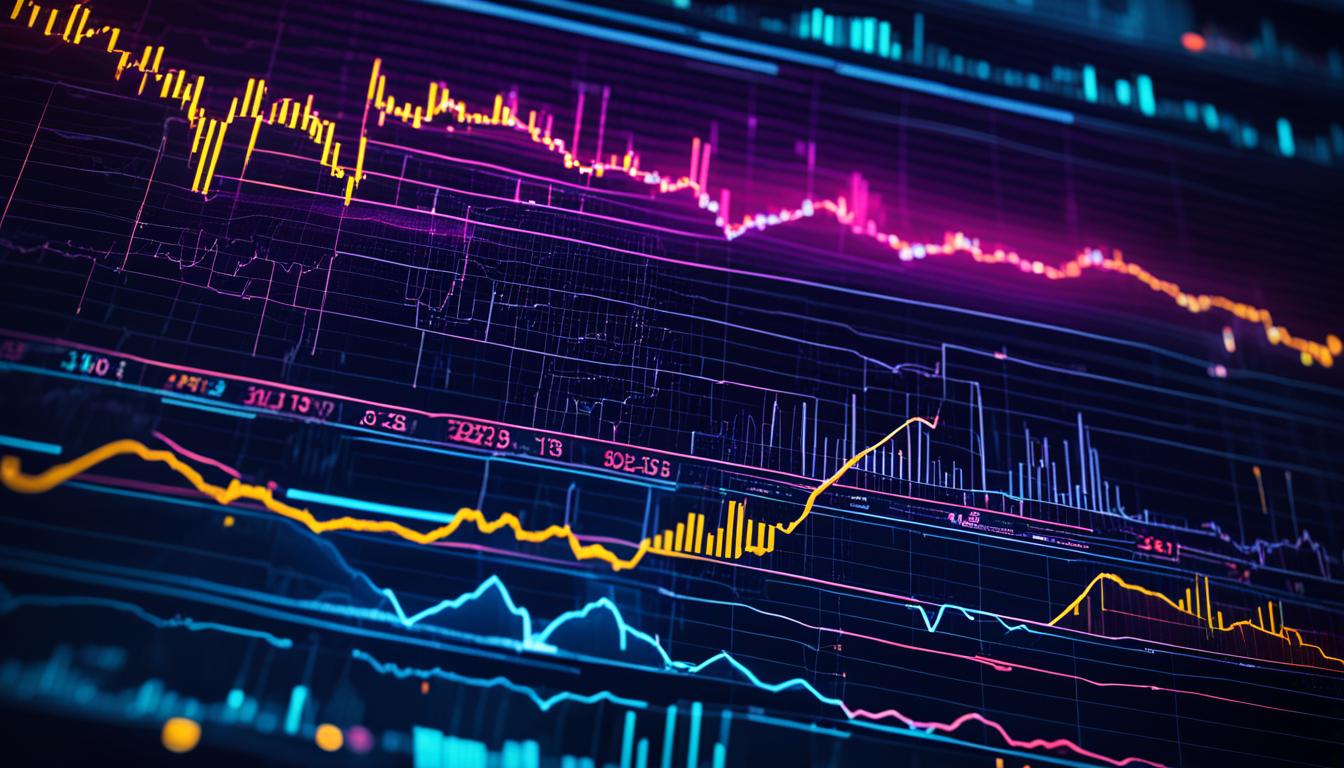Did you know that the emotional state of cryptocurrency traders significantly influences their trading decisions and outcomes?
When it comes to trading cryptocurrencies, emotions such as fear, greed, and the fear of missing out (FOMO) can have a profound impact on a trader’s decision-making process. These emotions can cloud judgment and lead to impulsive actions that result in poor trading results.
Understanding and managing these emotions is key to becoming a successful cryptocurrency trader. By gaining control over their emotional state, traders can make better-informed decisions, reduce emotional biases, and improve their chances of success in the fast-paced world of cryptocurrency trading.
Key Takeaways:
- Emotions play a significant role in cryptocurrency trading and can impact trading decisions and outcomes.
- Fear, greed, and FOMO are common emotions experienced by traders and can lead to poor decision-making.
- Developing strategies to manage emotions, such as creating a trading plan and implementing risk management strategies, can help traders make more rational and informed decisions.
- Mastering emotions is critical for success in the volatile and fast-paced world of cryptocurrency trading.
- By understanding and managing emotions, traders can increase their chances of making profitable trades and achieving their trading goals.
Importance of Mastering Emotions in Making Better Trading Decisions
When it comes to cryptocurrency trading, mastering emotions is not just a helpful skill, but a crucial one. Emotions, such as fear, greed, and FOMO (fear of missing out), can easily cloud a trader’s judgment and lead to irrational decision-making. These emotional biases can have detrimental effects on trading outcomes, often resulting in significant losses.
“Fear and greed are the two main drivers of the stock market. You must master your emotions to become a successful investor.” – Warren Buffett
By mastering emotions, traders can have better control over their decision-making process and make more informed choices. Let’s take a closer look at how emotions can impact trading decisions and why it’s crucial to keep them in check.
The Impact of Fear
Fear is an innate response to potential danger, and in the context of trading, it can manifest as a reluctance to take risks or an overwhelming sense of anxiety. Traders driven by fear often make hasty decisions based on short-term market fluctuations, which can lead to missed opportunities or premature exits from profitable positions.
The Danger of Greed
Greed, on the other hand, can push traders to take excessive risks in pursuit of quick profits. This can result in impulsive trading decisions, gambling with high leverage, or ignoring risk management strategies. Greed can blind traders to potential pitfalls and make them vulnerable to significant losses.
The Trap of FOMO
FOMO, or the fear of missing out, is a powerful emotion that can prompt traders to jump on the bandwagon without conducting proper analysis. This can lead to impulsive buying decisions based on the fear of missing out on potential gains. Traders driven by FOMO often enter the market at its peak, only to experience a significant downturn shortly after.
By mastering emotions, traders can avoid succumbing to these common emotional biases and make more rational and calculated trading decisions. Here are some techniques to help traders achieve emotional mastery:
- Practice mindfulness and meditation to cultivate emotional awareness and resilience.
- Develop a trading plan and stick to it, setting clear rules and guidelines for decision-making.
- Implement risk management strategies, such as setting stop-loss orders to limit potential losses.
- Learn from past mistakes and losses, using them as opportunities for growth and improvement.
Remember, mastering emotions is an ongoing process that requires self-awareness, discipline, and practice. By doing so, traders can navigate the volatile world of cryptocurrency trading with a clear mind and an increased likelihood of success.
| Emotions | Impact on Trading |
|---|---|
| Fear | Reluctance to take risks, missed opportunities, premature exits |
| Greed | Excessive risks, impulsive decisions, ignoring risk management |
| FOMO | Impulsive buying, entering at market peak, potential losses |
Developing a Trading Plan and Risk Management
A well-developed trading plan is essential for mastering cryptocurrency trading psychology. It provides a roadmap for success and helps traders navigate the volatile market with confidence. A trading plan incorporates several key elements, including clear and realistic goals, identification of trading style and strategy, determination of markets to trade in, and implementation of effective risk management strategies.
Setting clear and realistic goals is crucial for keeping traders focused and motivated. Goals could include desired profit targets, number of trades per day or week, or specific percentage return on investment. These goals serve as benchmarks to evaluate trading performance and allow traders to measure their progress over time.
Identifying a trading style and strategy helps traders align their trading approach with their strengths and preferences. It could be day trading, swing trading, or long-term investing. The chosen style should be in line with the trader’s risk tolerance and time commitment. Having a defined strategy reduces impulsive decisions and increases the likelihood of consistent profitability.
Risk management is a vital component of a trading plan. It involves determining the maximum risk exposure per trade, setting stop-loss orders to limit potential losses, and establishing profit targets to secure profits. By implementing risk management strategies, traders can protect their capital and reduce the impact of unexpected market movements. This disciplined approach helps traders make informed and rational trading decisions, minimizing emotional biases and increasing the chances of success in the world of cryptocurrency trading.

Leave a Reply